The Importance of Pet Dental Care: Why Regular Check-Ups are Crucial
Welcome to our blog on the importance of pet dental care! As pet owners, we all want our furry friends to live long and healthy lives. But did you know that neglecting your pet’s oral health can have serious consequences on their overall well-being? Just like humans, pets need regular dental check-ups and cleanings to maintain good hygiene and prevent potentially dangerous conditions from developing.
In this post, we’ll explore why it’s crucial to prioritize your pet’s dental health and how doing so can benefit both them and you in the long run. So let’s dig into this topic and discover why taking care of your pet’s teeth is more important than you might think!
Table of Contents
The Importance of Pet Dental Care

For many pet parents, dental care is an unavoidable part of keeping their furry friend healthy and happy. Dental problems can often be prevented with regular check-ups, but even minor issues can quickly become major headaches if not treated promptly.
Here are some reasons why pet dental care is so important:
1] Dental disease is the number one cause of death in dogs and cats.
2] A healthy mouth is key to a healthy pet, as it helps break down food properly and prevents plaque and tartar buildup.
3] Untreated dental problems can lead to a host of other health problems, including tooth loss, jaw pain, and antibioticresistant infection.
4] Proper oral hygiene also forms a personal bond between pet parent and pet – do your part to keep them both happy and healthy!
Types of Dentists
There are many different types of dentists, but the most common are general dental practitioners. They will treat all types of patients, including those with pet teeth.
Regular check-ups are important for both pets and humans because they can help to prevent serious dental problems. The American Animal Hospital Association (AAHA) recommends that pet owners get their petss teethchecked at least once a year, and more often if there are any changes or concerns detected.
The following are some of the most common issues that can afflict pet teeth:
▪ Periodontal disease is a condition caused by plaque accumulation and gum inflammation. It affects dogs and cats equally, but can be more severe in the smaller animals.
▪ Gingivitis is an infection of the gums which can lead to periodontal disease if not treated promptly. It’s most common in dogs and cats who chew on inappropriate objects (like rocks), but it can also be caused by diet or stress.
▪ Teeth that are too long or too short may cause difficulty chewing and munching, as well as restricted jaw movement. These problems can be corrected with a simple adjustment to the biting forces exerted during oral hygiene care.
▪ Broken or loose teeth should always be treated urgently because they put your pet at risk for developing abscesses, septicemia (a dangerous form of blood poisoning), and even death if left untreated.
What to Expect at a Domestic Dentist
When it comes to maintaining healthy teeth and gums, pet dental care is just as important as regular check-ups from your own dentist. Pets can develop tooth decay just like humans, and regular cleanings and whitening can help prevent serious problems from developing. Here are some other things to expect at a domestic dentist for your furry friend:
Fees at a Domestic Dentist
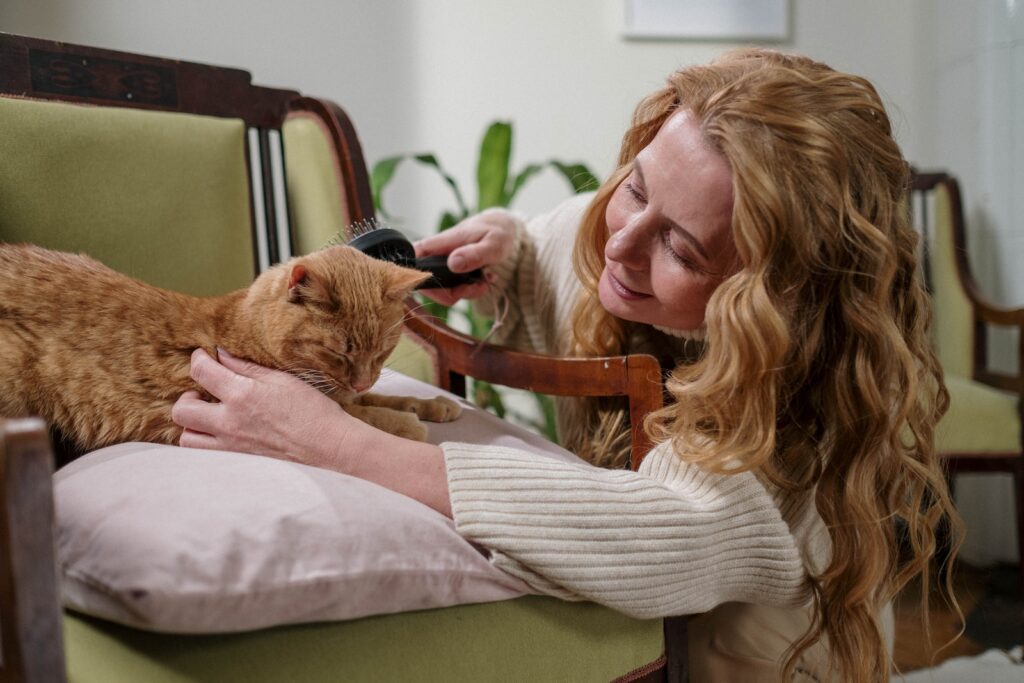
There are many reasons why it is important for pets to have regular dental check-ups. Not only do teeth decay and rot over time, but oral health problems can also develop if an untreated toothache or infection goes untreated. Moreover, a pet’s diet can contribute to condition of their teeth, so it’s important to keep track of what they’re eating and make sure it’s compatible with their oral health.
At a domestic dentist, fees generally vary according to the complexity of the examination and treatment required. Complex cases may require more than one visit, and some dentists might charge extra for X-rays or other diagnostic procedures. Fees for routine preventive care like exams and cleanings typically range from $30-$60 per service, which is pretty reasonable given the importance of good oral hygiene in pets. Most dentists accept payment in cash, check or credit card.
Fees at a Veterinary Dentist
Veterinary dentists offer many benefits to pet owners, such as dental cleanings and exams, treatment of oral health problems, and help with behavioral issues. In order to get the most out of veterinary dentistry for your pets, here are some key things to keep in mind:
1] Always make an appointment – regular check-ups are important for both your pet’s dental health and peace of mind. Make sure you schedule an appointment before coming in for a visit so that the dentist can properly assess your pet’s needs.
2] Be prepared to pay – Veterinary dentistry is not free and often requires additional expenses such as x-rays and lab work. Being upfront about this when making appointments will help avoid any unpleasant surprises later on.
3] Be prepared to provide documentation – Many vet offices request proof of current rabies vaccinations, Deworming Protocols, etc… before providing dental care. Make sure you have all the necessary paperwork available when you come in for your appointment so that no problems arise later on!
Which Pet Should I Take To A Dentist?
When it comes to your furry friend’s dental health, making sure they receive regular check-ups is just as important as giving them their vaccinations. Regular dental care will help keep their teeth clean and healthy, minimizing the chances of developing tooth decay or other dental problems in the future. Here are some reasons why pet dentists believe regular dental care is so important:
Tens of thousands of cases of tooth decay are caused by poor oral hygiene in pets . According to the American Veterinary Dental Association, 61% of dog owners and 84% of cat owners admit that their pets have bad teeth.
A study done by the British Veterinary Dental Association found that almost a third (30%) of unneutered cats aged 4 years and over had at least one broken tooth. Poor oral health in pets can lead to serious problems down the road, including chronic ear infections, stomatitis (inflammation of the tongue), reduced appetite and even death.
.. According to the American Veterinary Dental Association, 61% of dog owners and 84% of cat owners admit that their pets have bad teeth. A study done by the British Veterinary Dental Association found that almost a third (30%) of unneutered cats aged 4 years and over had at least one broken tooth.
Poor oral health in pets can lead to serious problems down the road, including chronic ear infections, stomatitis (inflammation of the tongue), reduced appetite and even death. An untreated toothache can quickly lead to a trip to the vet or even an animal hospital.
Toothaches are the most common type of pain experienced by humans, and according to the American Animal Hospital Association, they account for more than 50% of all visits to veterinarians. Needless trips to the vet can add up with expensive bills, and often results in missed work or school for pet owners.
If your pet is experiencing any of the above dental problems, scheduling a check-up with a trusted veterinarian is essential. Your pet’s dentist may recommend various treatments, including topical medications, dental cleanings and extractions (when necessary), and in some cases, oral surgery. Proper oral care for your pet can help keep their teeth and gums healthy, preventing them from developing serious dental issues in the future.
Why Regular Check-Ups Are Crucial
Regular dental check-ups are crucial for your pet’s health. This is because plaque and bacteria can form on teeth and gums, which can lead to tooth decay, gum disease, and other oral health problems. Signs that a pet needs a check-up include difficulty chewing or swallowing, bad breath, or bleeding from the mouth. If you notice these signs in your pet, make an appointment with your vet as soon as possible.
Conclusion
Regular pet dental care is important for several reasons. First of all, it helps prevent tooth decay and other dental problems down the road. Second, regular checks can help detect oral cancer early on. And finally, early detection allows for more effective treatment. So make sure to get your pet’s teeth checked regularly – it will truly benefit both you and your pet!


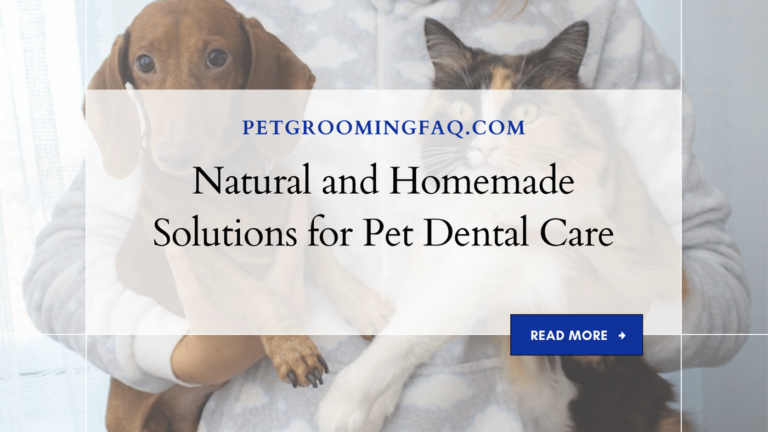
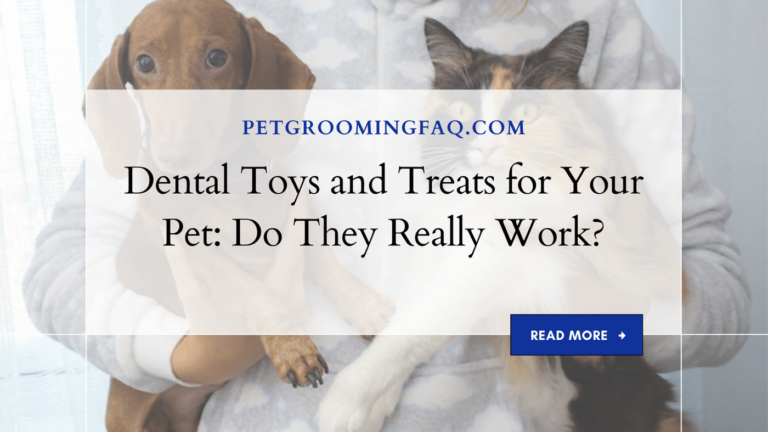
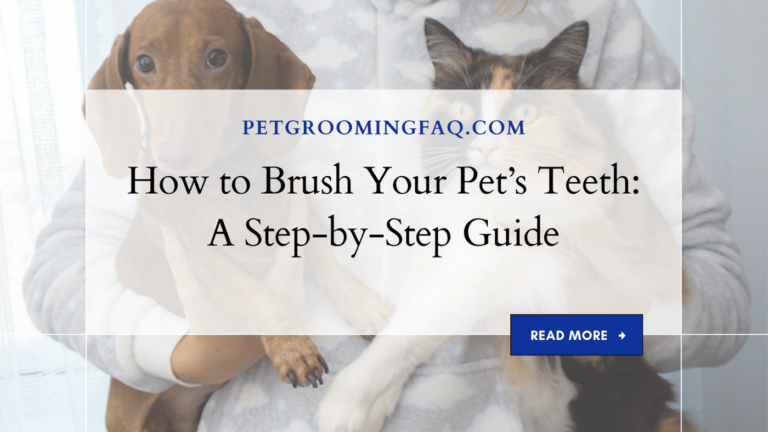

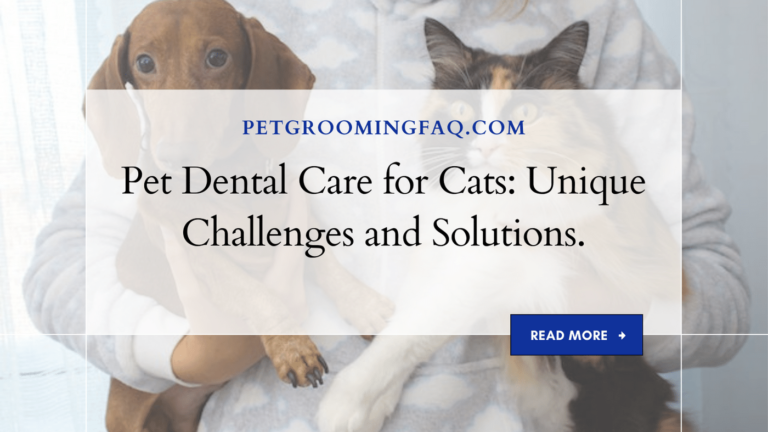
13 Comments